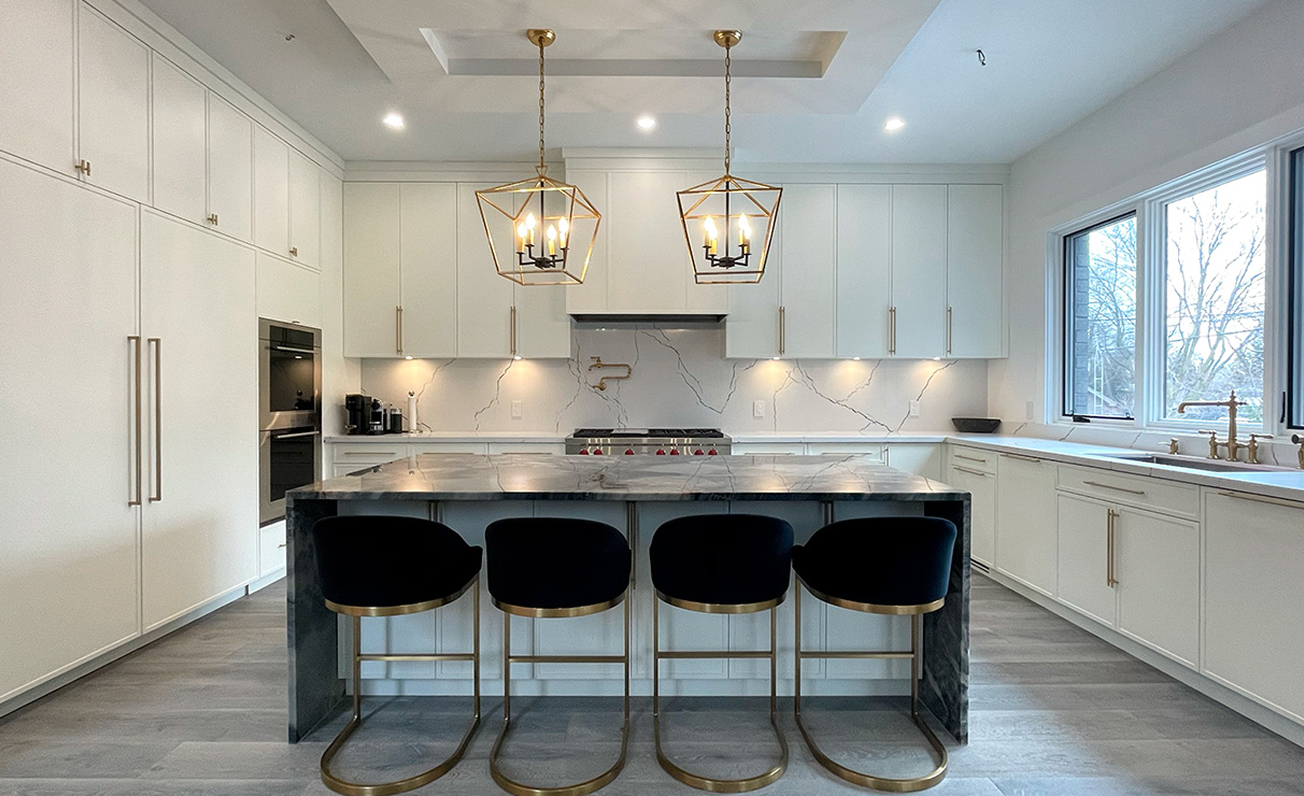Renovating your kitchen can be an exciting yet overwhelming process. Whether you’re updating an outdated space, expanding your cooking area, or creating your dream kitchen, a successful renovation requires careful planning, time, and effort. Before you embark on a kitchen renovation project, there are several key factors you should consider to ensure that the project runs smoothly and delivers the results you’re hoping for. In this blog, we’ll explore the top five things you need to know before starting a kitchen renovation.

1. Set a Realistic Budget
One of the most important aspects of any kitchen renovation is determining your budget. It’s easy to get carried away with big ideas and the desire for high-end finishes, but before you start tearing down walls or picking out appliances, you must have a clear understanding of how much you’re willing and able to spend. A realistic budget should account for the cost of materials, labour, permits, and any unexpected expenses that might arise along the way.
Start by researching the average costs of kitchen renovations in your area. This will give you an idea of what to expect and help you prioritize what’s most important in your renovation. Be sure to include a contingency fund, typically 10-20% of your total budget, to cover unexpected costs such as hidden structural issues or upgrades you may decide to add during the process.
2. Plan Your Layout and Workflow
Before making any design decisions, consider how you use your kitchen daily. The layout should be functional, allowing for an efficient workflow between the most commonly used areas: the stove, sink, and refrigerator. This is often referred to as the kitchen work triangle. An ideal kitchen layout should minimize unnecessary movement and maximize ease of use when cooking, cleaning, and prepping food.
Consider whether your current layout works for you or if changes need to be made. You might want to open up the space to create an open-concept design, add an island for more counter space, or shift the location of appliances to create a better flow. Take into account your household’s cooking habits—if you entertain often, you may need more space for socializing, while if you cook daily meals for a large family, you may need more storage and prep space. Keep these factors in mind when designing the layout.
3. Choose Materials That Will Stand the Test of Time
The materials you choose for your kitchen renovation can significantly impact both the look and longevity of your space. Kitchens experience a lot of wear and tear, from daily food prep to spills, moisture, and heat. Therefore, it’s essential to select materials that are durable, easy to maintain, and able to withstand daily use.
When choosing countertops, consider materials like granite, quartz, or marble, all of which are known for their durability and beauty. For cabinetry, solid wood is a popular choice because it’s long-lasting and can be refinished if necessary. If you’re considering backsplash materials, ceramic tile, subway tile, or glass tile are easy to clean and provide a timeless aesthetic. Flooring is another important decision, and hardwood, porcelain tile, or luxury vinyl are all excellent choices for durability and ease of maintenance.
While choosing high-quality materials might come with a higher upfront cost, investing in durable options will save you money in the long run by avoiding frequent replacements or repairs.
4. Be Prepared for Disruption
Renovating your kitchen can be disruptive. While it may seem like a dream to have a sleek, updated space, the reality is that a renovation can lead to weeks of construction noise, dust, and limited access to your kitchen. Depending on the scope of your project, you may need to relocate temporarily or set up a temporary kitchen in another part of your home.
It’s essential to prepare for this disruption and plan mentally. If possible, set up a secondary cooking area with a microwave, hot plate, or slow cooker to make meals while the kitchen is out of commission. Be sure to clear the area of any valuables or items you don’t want damaged by dust or debris. Set realistic expectations with your contractor about timelines and potential delays. Renovation projects can often take longer than anticipated, so it’s essential to remain flexible and patient throughout the process.
5. Hire the Right Professionals
While some DIY enthusiasts may be tempted to tackle a kitchen renovation themselves, hiring the right professionals is crucial to ensuring the success of your project. A skilled contractor, designer, or project manager can help you navigate the complexities of a renovation, from design and material selection to managing timelines and coordinating tradespeople. They can also help you avoid costly mistakes, such as choosing the wrong materials or layout, and ensure that all work is completed to code.
When hiring a contractor, take the time to research potential candidates. Check reviews, ask for references, and verify that they are properly licensed and insured. Get multiple quotes to ensure you’re getting a fair price, and ask for a detailed contract outlining the scope of work, timeline, and payment schedule. A professional designer can also help you visualize your kitchen’s potential, offering expert advice on the layout, materials, and style that will best suit your needs and space.
Bonus Tip: Consider Future Trends and Resale Value
While you may be focused on creating your dream kitchen, it’s also important to consider the future resale value of your home. Trends in kitchen design come and go, so it’s worth thinking about how your renovations will appeal to future buyers. You don’t need to create a generic, “cookie-cutter” design, but you should aim for a balance of style and practicality that will stand the test of time. Neutral colour palettes, classic finishes, and functional layouts tend to have broad appeal and can increase your home’s resale value. If you’re planning to sell in the near future, it may be worth consulting with a real estate agent to understand what buyers are looking for in your area.
Starting a kitchen renovation is an exciting project that can completely transform your home, but it requires careful planning and consideration. By setting a realistic budget, planning your layout, choosing durable materials, preparing for disruption, and hiring the right professionals, you’ll be well on your way to creating a beautiful, functional kitchen that will meet your needs for years to come. Keep these essential tips in mind as you embark on your kitchen renovation journey, and enjoy the process of bringing your vision to life!








